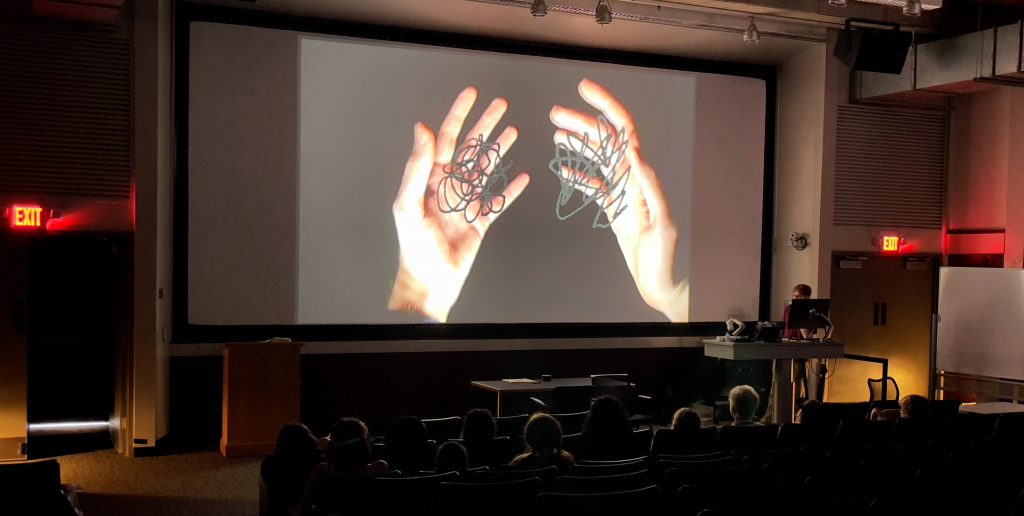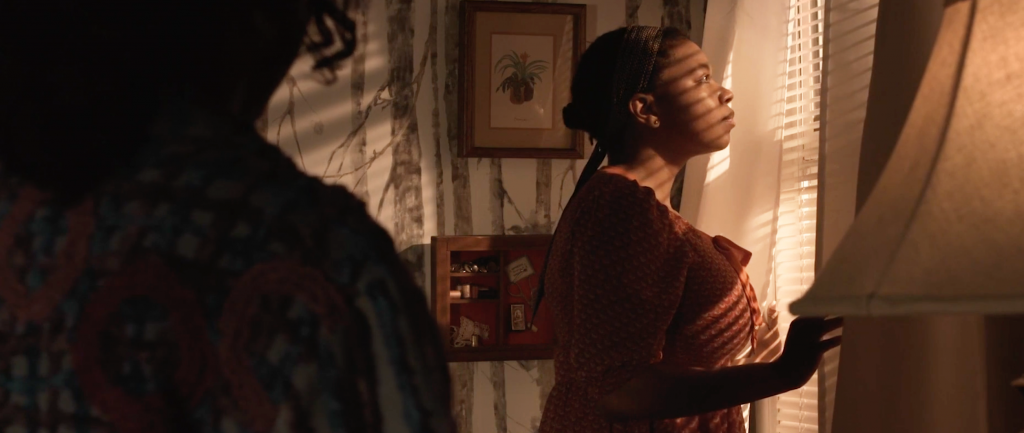Course Overview
In this hands-on filmmaking workshop, students will work in small creative and production groups and will have individualized mentoring. The program will focus on film and visual cinematic storytelling, creativity, and cinematic imagination. The team of instructors will meet students where they are. Through a series of hands-on workshops, students will learn basic filmmaking tools, concepts, and skills such as cinematography, sound recording, script writing, animation basics, editing, and post-production. This is a fast-paced course. We expect you to live, breath and dream cinema, while participating in this workshop. Each student will walk away with completed work made during this course and a more concrete command of the skill set needed to take a film idea from concept to creation.

Over the two weeks of the course, students will work on short projects that are 1-3 minutes in length. Short film is the creative lab of cinema and that is how we approach the course. There will be a mini film festival on the final day of class.
For the seventh consecutive year Syracuse University was ranked by The Hollywood Reporter as one of the “Top 25 American Film Schools.” The 2023 list, which The Hollywood Reporter compiled after consulting with educators, industry professionals and alumni, ranks Syracuse at No.19.

All students who successfully complete the course will receive a Certificate of Completion and have the opportunity to request a Syracuse University noncredit transcript.
Learning Objectives
- Explore basic filmmaking skills and learn basic principles of visual and cinematic storytelling.
- Experience the study of film with a distinguished creative team from the Syracuse University Film Program.
- Have fun while working hard on a short film
- Develop a film portfolio
Course Information
Course Prefix and Number: SCN 099
Format: On Campus (at Syracuse University)
Eligibility: Students must be of rising high school sophomore, junior, or senior status – or a 2026 high school graduate.
Credit: Noncredit
Grading: Pass/Fail
- Residential: $4,995
- Commuter: $4,024
Program rates are subject to change and will be approved by the board of trustees. Discounts and scholarships are also available.
Program Information
Summer College – On Campus: Experience what college is really like: take a college-level course, live in a residence hall, have meals with friends in a dining hall, and participate in activities and events on campus.

“Film has always been a great passion of mine, both to create and to analyze, and Syracuse University gave me the opportunity to hone both of those skills. I did so through the high level of enrichment provided by my film instructor and teaching assistants and their expectations that my fellow students and I could meet the challenges presented in this college-level course. We stepped up and worked together to make films with each other despite not knowing each other beforehand…”
— Samuel M., Summer College Filmmaking Student, 2020
Course Dates and Details
| Program | Course Dates | Class Time (Eastern Time) | Credit/Noncredit |
|---|---|---|---|
| Summer College – On Campus | 2-Week Session I: Sunday, July 5 – Friday, July 17, 2026 | MTWThF 9 a.m.-4 p.m. | Noncredit |
| Summer College – On Campus | 2-Week Session II: Sunday, July 19 – Friday, July 31, 2026 | MTWThF; 9 a.m.-4 p.m. | Noncredit |
To see if this course is ‘open,’ refer to the full course catalog.
Course Requirements
Technology Requirements
Basic film equipment is available for students to borrow. You are also welcome to bring your own camera & laptop, in which case please make sure you have those covered by insurance.
Please remember that filmmaking is not about fancy or sophisticated equipment, but about the ability to see, your imagination, and creativity. As filmmaker and cultural icon Agnès Varda put it, “In my films, I always wanted to make people see deeply. I don’t want to show things, but to give people the desire to see.”
Student Expectations
Filmmaking requires self-discipline. A significant commitment in time, focus, and creative effort outside of scheduled class meetings is necessary and expected on the part of students to successfully complete this course. If students fully invest themselves into their creative work, we will be able to create successful portfolio projects.
Typical Day
Tentative Schedule
Students are required to attend morning and afternoon classes, and an evening open studio / open screen session. It is also expected that you will find yourself writing scripts, filming on set, editing your project, or reviewing and discussing your project-in-progress or final edit with your instructors or classmates outside of scheduled class time. The instructional team will work with students in small groups and in individual mentoring sessions. This is a fast-paced, intensive, hands-on program. Students will have open lab/screen hours from 7-9 p.m.

When class is over, and on weekends, students can look forward to various Summer College – On Campus activities to meet and connect with other students! Check out our On Campus Experience page for more information!
Faculty Bios
Mišo Suchý
Syracuse University film program in the College of Visual & Performing Arts, has nearly three decades of filmmaking and teaching experience. He works with both still and moving images in his creative practice –filmmaking and photography often intersect and complement one another in his work. Mišo’s films have screened internationally, including at film festivals in Germany, Scotland, Italy, Poland, and in retrospectives in the Czech Republic and Slovakia, where he is originally from. His work was part of a retrospective of Slovak Documentary Cinema organized by Centre Pompidou, Paris, France. As a visiting artist, Mišo has presented his films at the International Museum of Film & Photography at George Eastman House, Rochester, NY; Cornell Cinema, Ithaca, NY; Yale University, New Haven, Ct.; and Hallwalls Contemporary Arts Center, Buffalo NY, among others. Mišo’s photographs were exhibited at the Photographers Gallery, London, UK; Washington Project for the Arts, Washington D.C.; and the Slovak National Gallery, Bratislava, Slovakia; and published in his artist’s book: “When I Was and Was Not at Home
In recognition of his creative work, Mišo has received grants from the New York Foundation for the Arts and NYSCA, the Pro-Slovakia Foundation, the Boston Film camp; Video Foundation, and the Pro-Helvetia Foundation. His films and photographs are in the permanent collections of The National Gallery, Bratislava, Slovakia; Lightwork, Syracuse, NY; and the International Museum of Film & Photography at George Eastman House, Rochester, NY.
I am looking forward to teaching summer filmmaking camp; media courses, together with my colleagues and a team of exceptionally talented award-winning aspiring and young filmmakers from Syracuse University, where we strive to foster a Film Program where each student’s unique voice can emerge.
Click here for additional faculty information.
